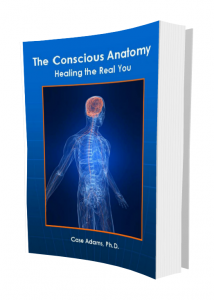Loving Kindness Meditation Improves Vagal Tone, Depression, PTSD
Recent research found that a type of meditation called loving-kindness meditation increases vagal tone and produces greater cardiovascular health. Other research has found this type of meditation reduces depression and PTSD symptoms.
In this article
What is vagal tone?
Vagal tone relates to the vagus nerve. This tenth’s cranial nerve’s origin is in the lower portion of the brainstem – in an area called the medulla. This region of the brain controls many of the body’s the autonomic functions, including those of the blood vessels, the heart, the digestive tract and the lungs.
In other words, our respiratory health, our digestive health and our respiratory health is closely tied to the activities of the vagus nerve.
This is because the vagus nerve descends from the brainstem down through the neck and heart and lung region through the thorax and down to the diaphragm. Here it regulates the rhythms of digestion – called peristalsis.
For these reasons, better vagal tone is linked with better overall health.
Study on Loving Kindness Meditation and vagal tone
In a study published in the Association for Psychological Science’s journal Psychological Science, researchers at the University of North Carolina and the Max Planck Institute for Human Cognitive and Brain Sciences divided 65 men and women into two groups. For two months, one group was guided through loving-kindness meditation and the other group was put on a waiting list.
Both groups were examined with regard to their vagal tone at the beginning and compared vagal tone with the intervention group and the control group – the ‘waiting list’ group.
The research found the meditation significantly increased vagal tone.
The researchers also found the effect was increased through social connections. With increased social connections came increased vagal tone. Even those with greater vagal tone in the beginning of the study had increases in the vagal tone after undergoing the meditation and applying it within their social connections.
Loving-Kindness meditation reduces depression
A study by researchers from the Veteran’s Administration in Seattle tested Loving-Kindness meditation for cases of veterans with posttraumatic stress disorder (PTSD). The researchers conducted a three-month course with weekly classes, and found that attendance was high – 74%.
In a three-month followup of the effects of the meditation course, the researchers found that the meditation significantly reduced depression and other PTSD symptoms among the veterans.
Researchers from Stanford University tested whether loving-kindness meditation could increase practical feelings of social connections between people and improve their view of each other. The study found the affirmative.
Vagal tone increases heart rate variability
Better heart rate variability has been linked with better emotional control and adaptability. Heart rate variability is a variation in the intervals between beats. Reduced HRV has been linked to increased heart attack risk.
Increased heart rate variability has also been linked with longer lifespans and reduced stress in general. Several studies have linked increased tone of the vagus nerve – vagal tone – with increased heart rate variability.
What is loving-kindness meditation?
The meditation has its roots in Buddhism and it seeks to produce within the heart, four experiences:
- Friendliness (metta)
- Compassion (karuna)
- Appreciative Joy (mudita)
- Equanimity (upekkha)
Typically the meditation is to be directed at someone who the person respects greatly, and traditionally in Buddhism this has been used with respect to ones spiritual teacher and the Buddha. More modern/secular versions of this practice will direct ones loving-kindness meditation towards a friend, family member or even a person where there is a disagreement with – or multiple parties. It is typically not done with those of the opposite sex as that can provoke the opposite effect.
Modern techniques suggest a self-love technique but the traditional meditation focused upon oneself in a humble manner, and seeking forgiveness for oneself.
The meditation brings ones focus towards the positive aspects of the person or persons – thinking of the person’s achievements, their personality qualities and directing appreciation towards the person(s). This can include visualizing the person in a kind exchange.
The meditation then progresses to sending out positive feelings – positive intentions for the person(s) and their own life and future.
How to practice loving-kindness meditation
Loving-kindness meditation can be practiced in cases of difficulties with work or personal relationships as well as building our overall feelings towards others. The meditation itself can done lying down, sitting or walking.
Deep breathing with eyes closed is often suggested to minimize outside interruptions.
It can be guided by others or self-guided. It is helpful to organize and even write down the positive areas and intentions towards the person(s) that will be focused upon prior to the meditation. This unburdens the meditation to enable better focus.
It is more successful when personalizing the experience rather than be guided through rote repetition.
Loving-kindness meditation can also be used within spiritual practice – as was originally intended. Thus it can be directed towards the Supreme Being.
References:
Kok BE, Coffey KA, Cohn MA, Catalino LI, Vacharkulksemsuk T, Algoe SB, Brantley M, Fredrickson BL. How positive emotions build physical health: perceived positive social connections account for the upward spiral between positive emotions and vagal tone. Psychol Sci. 2013 Jul 1;24(7):1123-32. doi: 10.1177/0956797612470827.
Kearney DJ, Malte CA, McManus C, Martinez ME, Felleman B, Simpson TL. Loving-kindness meditation for posttraumatic stress disorder: a pilot study. J Trauma Stress. 2013 Aug;26(4):426-34. doi: 10.1002/jts.21832.
Hutcherson CA, Seppala EM, Gross JJ. Loving-kindness meditation increases social connectedness. Emotion. 2008 Oct;8(5):720-4. doi: 10.1037/a0013237.
Park G, Thayer JF. From the heart to the mind: cardiac vagal tone modulates top-down and bottom-up visual perception and attention to emotional stimuli. Front Psychol. 2014 May 1;5:278.
















